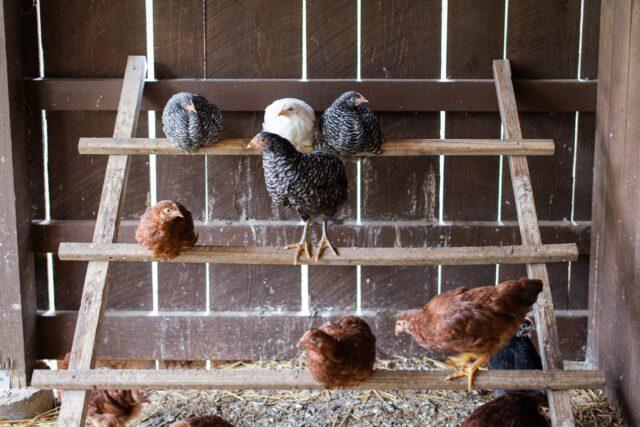
Department responds to case in Northumberland County to mitigate risk to poultry industry
No Public Health Risk for Pennsylvanians
The Department of Agriculture today reminds all poultry owners – backyard flocks and commercial producers – to keep their guard up to protect their birds from highly pathogenic avian influenza (HPAI). After a lull in detections for several months, Pennsylvania has detected a new case of avian influenza in a game bird flock in Lower Mahanoy Township, Northumberland County.
Samples from this detection are being forwarded to the USDA National Veterinary Services lab for confirmatory testing. However, the Department has worked with the premises operator to respond immediately and mitigate impact.
Poultry and eggs continue to be safe to eat. Human health is not at risk. According to the U.S. Centers for Disease Control and Prevention, avian influenza does not present an immediate public health concern.
“While the Commonwealth has not had a case of HPAI since March 17, 2023, the Shapiro Administration and industry have remained vigilant and prepared,” Agriculture Secretary Russell Redding said. “In partnership with USDA and PA Animal Diagnostic Laboratory System, we quickly responded to the incident. This case is a reminder that this disease can strike anywhere, at any time, and that poultry owners must protect their birds through biosecurity and planning.”
The Department has quarantined the farm and established a Control Area around the farm. Control Areas are the 10 kilometer perimeter around an infected, quarantined farm. Poultry owners in Control Areas are subject to testing requirements and must have permits to transport poultry, poultry products, and related equipment. Anyone within three kilometers of the infected farm may not transport any poultry or egg products.
Redding reminded backyard bird owners and poultry and egg producers to stay vigilant, especially as wild bird migration season continues.
• Practice excellent biosecurity every day.
• Everyone on the farm should clean clothes, scrub boots or shoes with disinfectant, and wash hands before and after contact with animals.
• Keep equipment and vehicles clean, including all those entering your property.
• Control birds and rodents who can carry and spread disease.
• Keep your birds inside whenever possible and minimize the chance of contact with wild birds.
• Clean under barn soffits and eliminate possible entry points for wild birds.
• Eliminate standing water that may attract wild birds.
For detailed information on biosecurity and protecting your flock visit the USDA APHIS | Defend the Flock Program.
The commonsense, bipartisan budget Governor Shapiro signed increased funding for the Department of Agriculture by nearly 6.4%, supporting agricultural emergency preparedness and response, including $31 million to help poultry farmers impacted by the HPAI crisis to cover testing costs and assist with reimbursed for losses to their flocks.
These funds support the HPAI Recovery Reimbursement Grant program, administered by the Pennsylvania Department of Agriculture, to provide reimbursement to farms, integrators, and allied industries directly impacted by HPAI. This covers those who incurred demonstrable financial losses due to inclusion in a control or quarantine zone.
Since taking office in January, the Shapiro Administration has been focused on supporting Pennsylvania farmers by deploying a team of over 170 experts to help conduct testing and improve security measures on farms across the Commonwealth. A response team made up of hundreds of veterinarians and specialists from the PA Department of Agriculture, U.S.
Department of Agriculture, Penn State Extension, and PennAg Industries worked side by side with poultry businesses to ensure continued vigilance and preparedness in Pennsylvania.
Recognize signs of disease. Report suspected cases and any unusual deaths to the department at 717-772-2852. A veterinarian is on call 24 hours a day, seven days a week.
Sick or dead wild birds should be reported to the Pennsylvania Game Commission at 610-926-3136 or pgc-wildlifehealth@pa.gov.
For a complete listing of confirmed infections in the U.S. visit the USDA’s website, aphis.usda.gov.
To learn more about avian influenza, including whether your farm is within the Control Area of an infected farm, visit the department’s website, agriculture.pa.gov.







